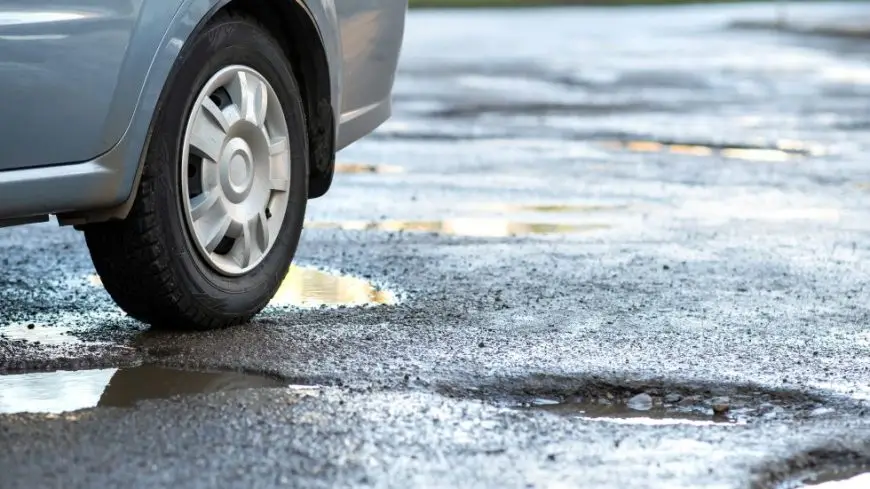Do April showers bring May potholes? ️
As we transition from April showers to May flowers, do not forget about another springtime blossom – May potholes! While April’s rains bring necessary hydration to the environment, these showers can also lead to the deterioration of roads. Heavy rain can often result in significant damage such as cracking and potholes, which not only disrupt road systems but are also a serious safety hazard. ️
Inadequate drainage, expansive subgrade soil, and the use of poor materials all contribute to this problem. Roads become wet and dangerous, slowing down driving speeds and reducing road capacity. The results are delays and an increased risk of accidents, especially during rainy weather. The National Highway Traffic Safety Administration (NHTSA) reports that there are nearly 6 million car accidents each year, with over 1.2 million, or 21%, attributed to dangerous weather conditions, with the top causes being wet pavements and rain (followed by snow, ice, fog, and wind).
Rain might dry quickly, but the water can accumulate in puddles and then seep into the pavement. This has the potential to lead to structural problems in roads, parking lots, walkways, and other paved areas. Heavy rains can weigh on the asphalt, creating cracks, potholes, and other pavement disturbances. Even a minor crack can deepen and pose safety hazards. New asphalt is especially vulnerable to cracking under heavy rainfall. It is a mixture of oil and aggregate. After laying, it slowly dries and cures into a solid surface that is not vulnerable to rain damage. However, until the asphalt dries, the oil inside can react to water, causing it to rise to the surface. Therefore, many experts recommend laying asphalt when rain is not expected for at least 24 hours. Without proper drainage, pools of standing water on the freshly laid pavement can seep into tiny cracks, leading to larger fissures, potholes, and raveling.
Beyond the impact on road users, stormwater runoff and leaching from roadways can harm the environment. It’s important to address such challenges to improve safety and sustainability in the transportation system. Working with ICC-IMS can offer innovative solutions to mitigate these issues, allow for tax dollars to go further, and ultimately make roads safer for everyone.
What measures has your municipality/state/province taken or implemented to improve road safety and reduce potholes in your area? Share your thoughts!
Contact us at icc-ims.com to learn more about surveying the conditions of sidewalks, bike paths, and road pavements in your community.
#Rain #Potholes #Deterioration #Pavements #RoadSafety #NHTSA #Spring

